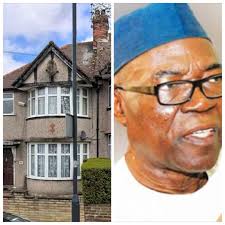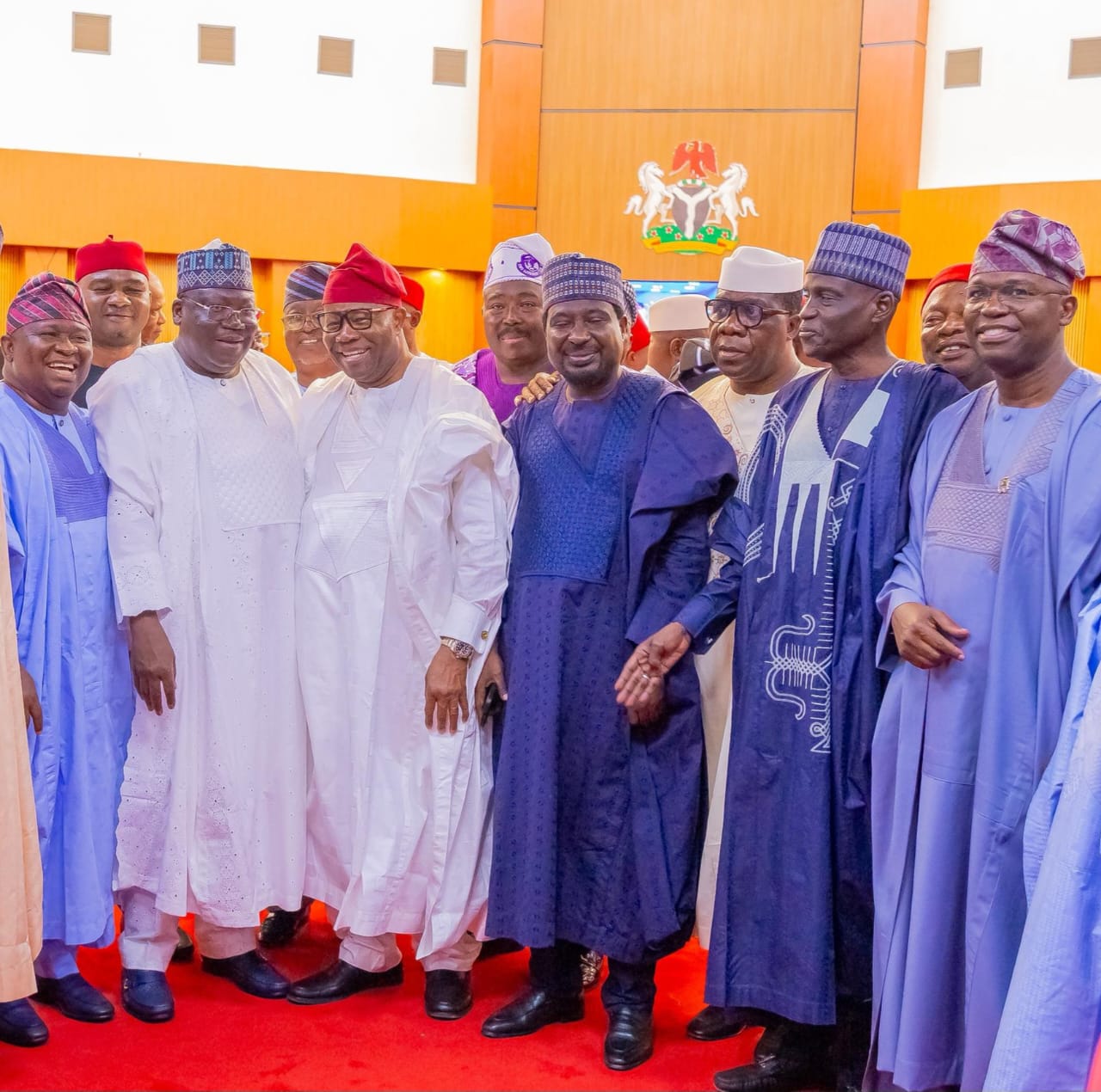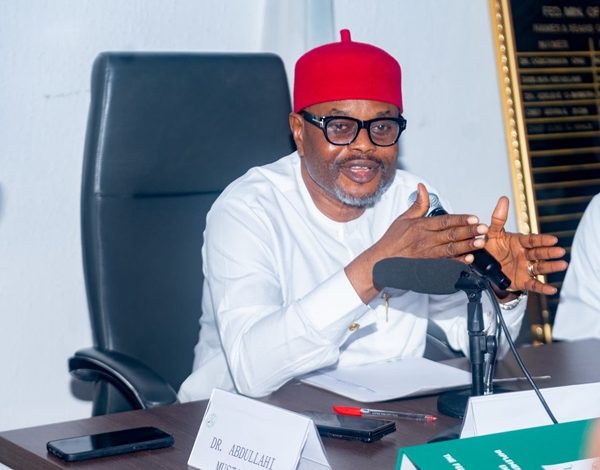Uncategorized
HOW THE NORTH CAN END INSECURITY – Govs, Emirs

After years of seeming inactivity and lack of direction on ways to end youth restiveness and general insecurity in Northern Nigeria, a joint meeting of the Northern Governors’ Forum and the Northern Traditional Rulers’ Council in Kaduna has resolved to develop a roadmap to tackle these problems. Our correspondent in Kaduna reports that the Northern leaders believe investing in education, skills development, job creation, and agriculture may be the best solution.
After receiving briefs from the Chief of Defence Staff, General Christopher Musa, and other speakers, the Northern leaders agreed that creating pathways for youth to channel their energy into productive ventures may reduce their vulnerability to crime and other social vices.
A communiqué issued at the end of the meeting indicated that the Forum received detailed briefings on the real security challenges in the North and the efforts made by the military to address these issues. Following extensive deliberations, they agreed on the need for collaborations.
According to the communiqué, the meeting emphasized that Northern Nigeria holds immense agricultural potential, which, when fully harnessed, could significantly address root issues such as hunger, unemployment, lack of education, and negative social orientation.
The meeting further agreed that one sure way to reduce insecurity is through rapid re-industrialization of the North, focusing on reviving the textile value chain and developing other agro-allied industries.
It also resolved to provide adequate support to farmers in the region, including access to financing, modern farming techniques, and infrastructure such as roads and irrigation systems.
“Agriculture should not only be seen as a means to feed our people but also as a catalyst for industrialization and job creation across the region,” the communiqué stated.
On insecurity, the Northern leaders acknowledged recent gains against criminals, including the elimination of bandits and terror leaders, and resolved to sustain these achievements to ensure lasting peace and stability in the sub-region. They commended the Federal Government and security agencies for their commitment to ensuring community safety and took particular note of the efforts of the Chief of Defence Staff, General Christopher J. Musa, praising his professionalism and innovative approach, which they said has strengthened the country’s security architecture.
“Nevertheless, more needs to be done to address pockets of challenges that persist in the Northern Region,” they added.
The leaders emphasized that traditional institutions are critical to achieving lasting peace and security in the region as they act as a bridge between the government and the people. They called for increased roles for Traditional Institutions to enhance cooperation with security agencies in combating kidnapping for ransom, banditry, cattle rustling, communal clashes, and other vices.
They sympathized with the victims of recent flood disasters in Maiduguri and other Northern states, as well as the families affected by the tragic tanker explosion in Jigawa State. The meeting noted that the situation underscores the need to reduce illiteracy, joblessness, and disregard for lawful cautions.
The governors and emirs also commiserated with other victims of terrorism, banditry, and similar criminal activities in the North and across Nigeria, expressing solidarity with them during these difficult times.
“We agreed to continue working with the Federal Government and relevant agencies to provide the necessary support and relief to those affected,” they affirmed.
They commended President Bola Ahmed Tinubu for the reform initiatives in the livestock sector and pledged the necessary political will and commitment to ensure the success of the Federal Government’s livestock development initiatives. They also pledged continued engagement and idea-sharing with the Presidential Livestock Reforms Implementation Committee for better results.
Acknowledging the impact of climate change, which has contributed to recent floods in many parts of the North, the Northern Governors and emirs resolved to partner with the Federal Government and other stakeholders to build irrigation infrastructure like canals and waterways to divert excess water toward irrigation activities, thus enhancing rural livelihoods and safeguarding food security.
They also agreed to support and join any initiative aimed at addressing the challenges of out-of-school children and improving educational outcomes in the sub-region, as declared in the communiqué.
However, the leaders expressed dismay over the recent Tax Reform Bill forwarded to the National Assembly, which they deemed skewed. They took exception to its contents, arguing that it is against the interests of the North and other sub-nationals, particularly the proposed amendment to the distribution of Value Added Tax (VAT) based on a derivation-based model.
They argued that companies remit VAT based on the location of their headquarters and tax offices, rather than where the services and goods are consumed, and therefore unanimously “reject the proposed tax amendments” and urged members of the National Assembly to oppose any bill that could jeopardize the well-being of the region.
“For the avoidance of doubt, the Northern Governors’ Forum and the emirs are not opposed to any policies or programs that will foster the growth and development of the country.”
Uncategorized
London Property Dispute Exposes Alleged Corruption, Forgery by Nigerian Politician and Lawyer

By Hassan Taiye
A recent judgment by the UK’s First-tier Tribunal (Property Chamber) has shed light on a complex web of alleged corruption and forgery involving a Nigerian politician and a senior lawyer. The case revolves around a disputed property in North London, valued at 79 Randall Avenue.
The property was purchased in 1993 under the name “Tali Shani,” which is allegedly an alias for late General Jeremiah Useni, a powerful member of the Abacha regime. Chief Mike Ozekhome, SAN, claimed the property was gifted to him by “Mr. Tali Shani” in 2021 as payment for legal services. However, the tribunal dismissed this claim, describing it as “fabricated” and “fraudulent.”
The tribunal’s ruling highlights the alleged involvement of Ozekhome and his associates in fabricating documents, including a Nigerian passport, National Identification Number (NIN), and Tax Identification Number (TIN). The NIN was reportedly created remotely from Monaco using a non-compliant photograph and bypassing biometric requirements ¹.
The Human and Environmental Development Agenda (HEDA Resource Centre) has petitioned the Independent Corrupt Practices and Other Related Offences Commission (ICPC) to investigate Ozekhome and others over alleged fraud, forgery, and unlawful attempt to acquire the London property. The ICPC has launched an investigation, and the Attorney-General of the Federation (AGF) has also taken notice of the case ²
Chief Mike Ozekhome, SAN Senior lawyer accused of forgery and attempting to acquire the property through fraudulent means.
General Jeremiah Useni Late Nigerian General allegedly behind the purchase of the property under the alias “Tali Shani.”
Osilama Ozekhome*: Ozekhome’s son, implicated in the alleged forgery and fraud.
Uncategorized
photo

L-r Senate Committee Chairman on Appropriation, Solomon Adeola; Senate Deputy Whip, Onyekachi Nweboyin; Former Senate President, Ahmad Lawan; President of the Senate, Godswill Akpabio; Senator Sharafadeen Ali; Deputy Senate President, Jibrin Barau; Senate Leader, Opeyemi Bamidele; Senate Whip Tahir Monguno and Senate Committee Chairman on Financial Institutions, Tokunbo Abiru, after resumption of plenary yesterday. Photo: Senate President’s Office
Uncategorized
BREAKING: Tinubu’s Minister, Uche Nnaji, Resigns Amid Certificate Forgery Scandal

By: Fabian Apechihin
The Minister of Innovation, Science and Technology, Uche Nnaji, has resigned from President Bola Ahmed Tinubu’s cabinet amid a growing controversy surrounding his academic credentials.
Presidential spokesman Bayo Onanuga confirmed Nnaji’s resignation in a statement issued late Tuesday.
Nnaji’s exit follows mounting allegations that his academic certificates were forged. Investigations revealed that the University of Nigeria, Nsukka (UNN), disowned the Bachelor of Science degree he claimed to possess, stating that he never completed his studies at the institution and was therefore not issued any certificate.
According to UNN Vice-Chancellor Prof. Simon U. Ortuanya, Nnaji was admitted in 1981 but failed to meet the requirements for graduation.
In a related development, the National Youth Service Corps (NYSC) reportedly disowned the certificate of national service presented by Nnaji, describing it as fake.
His resignation marks the latest in a series of controversies to hit the Tinubu administration over questions of integrity and accountability among public officials.
-

 Uncategorized5 years ago
Uncategorized5 years agoFG, states urged to harness flooding for ranching, others with technology – Agbaje
-

 Headlines10 years ago
Headlines10 years agoBreaking: EFCC seals Borno House of Assembly, as Hon members take to their heels
-

 News11 years ago
News11 years agoNigeria Security Operatives Stage Manhunt For Homosexual Perpetrator
-

 News9 years ago
News9 years agoHow 21-year-old Girl fled community over accusation of lesbianism
-

 News10 years ago
News10 years agoYobe Gov Moves Against Deputy
-

 Opinion6 years ago
Opinion6 years ago7 signs she has friend zoned you
-
Technology4 years ago
Online job placement company headhunts women
-

 Headlines9 years ago
Headlines9 years agoBorno Dep Gov Abducts Another Church Leader





